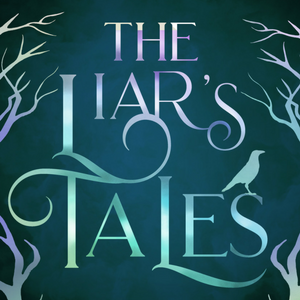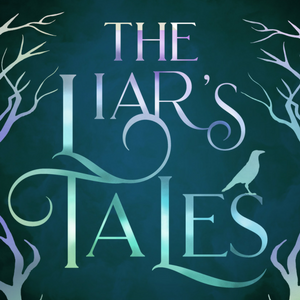Part 1 - 5
When times were tougher and orphans ordinary as porridge, a young girl stumbled into the furthest town north in Amberjack, like a tumbleweed. Between the flues of last winter and lost ships on the Lonely Sea, the once prosperous townsfolk clung onto the familiar: sons, daughters, grandparents, uncles, cousins, and even strangers with distant blood-ties all surfaced in need of beds, meals, and work. The once welcoming dispositions of Porttown went dry as day-old bread, and it was the worst time in history to ever be a nameless orphan of nobody-knows-who.
But stumbling out of the Neverwoods, which thankfully no one witnessed, a young girl set about rummaging every skill she’d learned to survive. One got her a name: Picky. But not from an unwillingness to eat certain foods, because within hours on the streets she’d taken to diving in garbage cans and tugging dress hems for scraps. But the day people remembered her name was a morning, gloomy as ever and ordinary as rain.
Picky’s luck waned like a bad moon when she woke from the first winter night in the alleyway. Not any alley, but one between two tall buildings that kept out most of the cold, some of the wind, and none of the rain. It faced a library she’d never dared step into, but whose chimney warmth she swore went every direction, including her own. Yet for the first time, it hadn’t budged away enough of the coldness in her fingertips. Had she owned a pair of gloves to warm her hands, maybe her grip wouldn’t have slipped on the bread loaf.
And the Baker wouldn’t have caught her.
At least, that’s what Picky went on to think ensnared like a hare with a wire around its limb. But unbeknownst to Picky, even rising from a Queen’s four-post bed that day wouldn’t have done a scrap of good. Because the Baker had noticed something arwy for a long time. So, when the Baker lurched his wrist out like a frog catching a fly, they both locked eyes the way every prey does when caught by something much larger.
Some passerby’s gasped at the scene, and one woman with a baby at her hip veered away at the roughness of it all. But none of them knew that the Baker had begun to question himself in ways that made him very uncomfortable. Questions that if left unanswered might have driven him to a dark place, like the back of a cupboard where you find rotten potatoes.
For twenty years or so, the Baker sold two dozen loaves is what he sold each day, along with the five baguettes, dozen rolls, ten pretzels, and usually a pastry or two depending on the sweet tooth of the Mayor. But for one month, a loaf of bread was always missing. The man had a way with numbers, so when the bread went missing every week at the market it bothered the Baker worse than a splinter in your thumb.
“You’re the one that’s been taking it!” the Baker said, and his eyes bulged.
“I’m sorry,” Picky yelped and found a dozen faces all staring in her direction.
The Baker let go of her wrist with a fleck of his meaty fingers, “go on, take it. But steal from me again, girl, and you’ll be sailed out to who knows where on the Lonely Sea.”
Regretfully, had Picky asked for bread or inquired about an apprenticeship the baker was scouting for, only good things would have risen for Picky. But in that spectacle in the middle of the market under the watchful eyes of the Porttown locals, Picky went from an unfortunate to an urchin. Thieves got a level of empathy drier than a desert well. Thankfully, she did not know of the Baker’s ties to his pirate father or she might have dropped the bread rushing back towards her hovel in the alleyway. Once there, she held onto her food until all its dry, warmth seeped out amid the sogginess of everything else, and Picky wondered if it would be the last thing she’d ever eat.
But a flapping noise cut the stillness. A caw murmured out, long and rattling. Goosebumps crept up along her arms. Her gaze went towards the corner from where the sound came, over near the brick wall where nothing but a weathered poster hung limp. Yet there amid the scraps of wood and streaks of chimney soot was a figure. Blue-black and feathered, a raven watched with a pair of beady eyes, its head cocked as if puzzling out what to do. Had it been a robin or pigeon or seagull or owl or any other ordinary bird Picky wouldn’t have minded the company.
But a raven only meant one thing when it found you in bad times.
“Are here for me?” she said and remembered to breathe because her lungs seemed to have rusted up. “Or are you hungry?”
The Raven edged closer, it’s left wing dragging at the ground. Picky ripped off a piece of bread and held out the morsel. The Raven gave a swift peck to the offering, but moments later its eyes washed over in a whorl of white like smoke blown from a match.
“Picky,” the Raven said and gave a nip to her finger. “I’ve watched you.”
Picky rubbed her eyes and put a hand on her forehead, but all the checking revealed no fevers, or dreams or anything else but that the Raven was there, and he had talked.
And kept on talking.
“I’ve come to take us away,” the Raven said, albeit with a voice scratchier than a dry corn cob. “But if you do three tasks, death will not take us.”
For all she’d forgotten from her parents, Picky remembered that trying to dodge a cunning creature only meant getting a bed in a cemetery by the morning. An animal that worked with death wasn’t like an ordinary tabby cat. Picky pushed aside her will to dash off beneath a stack of blankets and said, “three tasks, and I don’t die?”
“Yes. First, mend my wing so that I can fly once again. Do you know how?” the Raven said, and flapped the limp wing.
“Once I broke my finger,” Picky said, and fished around for a piece of wood and tore a strip from her own shirt. “Mom made a splint from some cloth and a stick. How did you get hurt?”
The Raven took an exhale through its sharp beak and hopped onto Picky’s knee. “Not everyone likes ravens unless it’s hitting them with rocks from slingshots.”
“That’s so mean,” Picky said and wove the fabric to tie a crude splint, and when the Raven flapped his wings, the bandage held together.
“They’re scared of me,” the Raven remarked.
“Don’t know why-” Picky began, but stopped.
The Raven peered into Picky’s eyes, his own turning cloudy white once again and said, “tonight, we sleep in the library.”
Picky stared at the ground for a moment, until the Raven’s eyes went clear again.
“What is it?” the Raven said and blinked.
“Nothing,” she said and tried to smile. “I didn’t know animals talked.”
The Raven’s head turned a little. “My eyes. They frighten you.”
“No, they’re fine,” Picky said, squirmed atop the crate where she sat.
The Raven sniffed the air. “I can sense your heartbeat. Oh, you’re wise for being afraid. I would be too.”
Picky curled her mouth inward as if to try and keep her words inside, before speaking quietly as a mouse. “Well, until you say stuff like that.”
“I’m a raven of death, not a pet goldfish. And from what I can see, you’re an orphan that wants to see age eleven. So, I ask again, can you get us inside that library?”
“I’ve never even borrowed a book before,” Picky said and turned her stare towards the narrow building across the street. Its façade was old, smoothed by wind and a great deal less harsh than the pokier buildings pinching it on both sides like a clothespin. No lights remained on after closing down in the late afternoon, aside from a glow reflecting from its circular window. “They’ll kick us out of town if we get caught. We can’t!”
“Then we’ll both be dead by morning,” the Raven said, clicking his tongue in an almost bored kind of way and bit off another piece of bread.











Comments (0)
See all